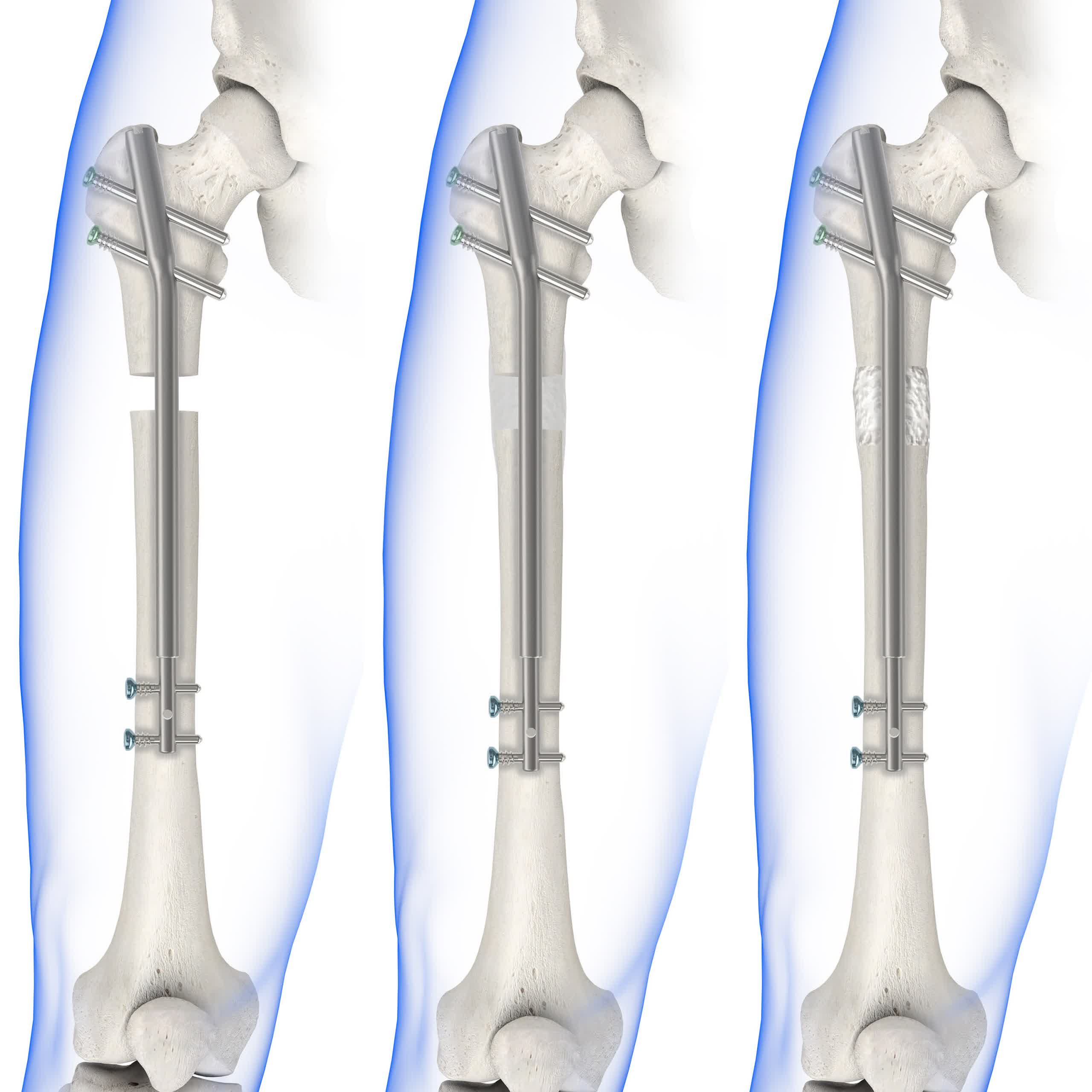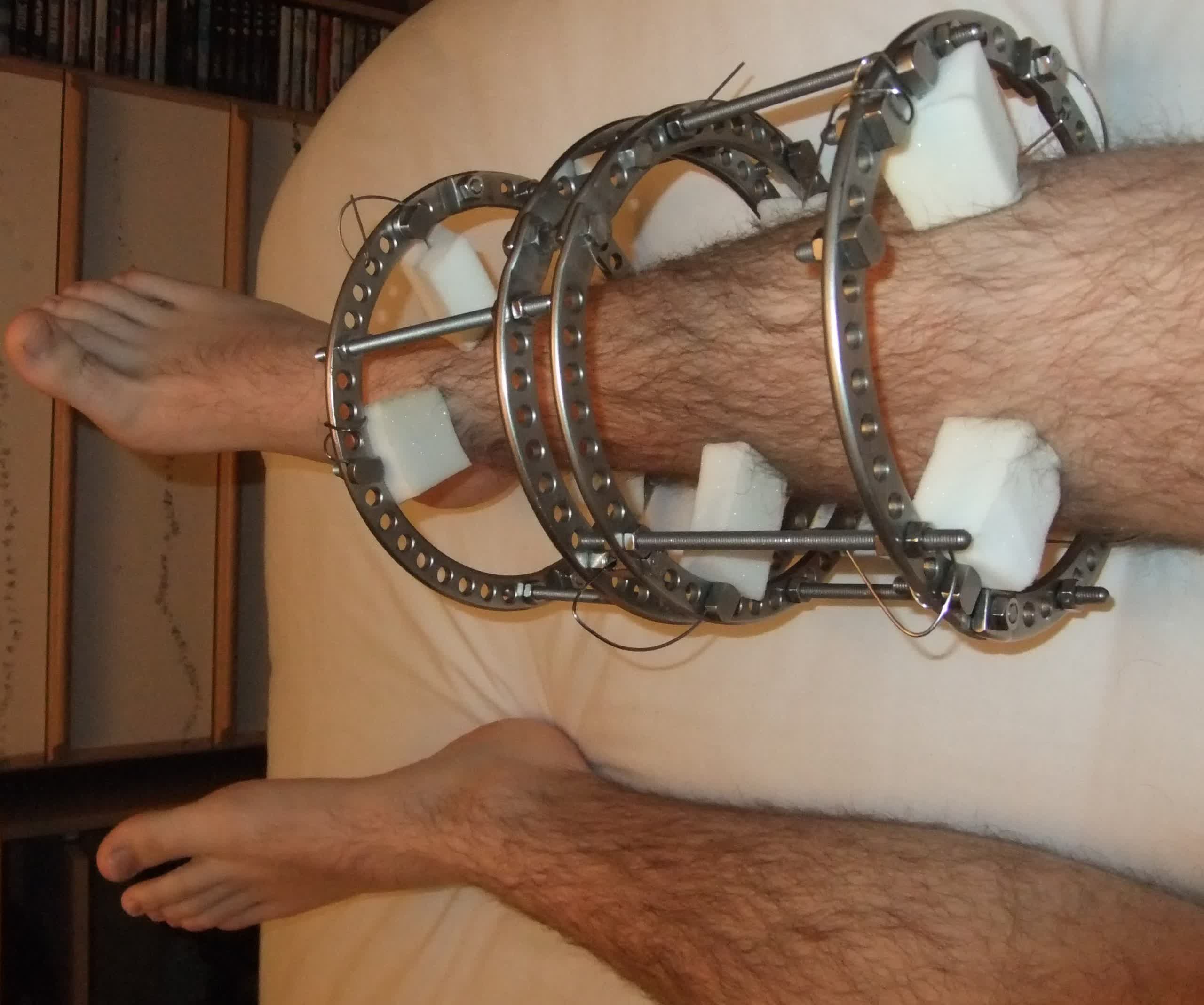WTF?! How much would you pay to be three inches taller? $75,000? To some, that's a fair price to increase their stature. Interestingly, tech industry professionals make up a good portion of the patients requesting this expensive and excruciating surgery. Is it really worth it? I suppose it depends on your perspective, but after reviewing the details, I'm not sold.

There has been a recent surge in an uncommon form of cosmetic surgery that adds a few inches to the patient's height. Dr. Kevin Debiparshad, one of the few doctors who performs the procedure in the US, claims he has up to 50 new patients per month wanting to be a little bit taller. Oddly, a large number of them work in the tech industry.
"I joke that I could open a tech company. I got, like, 20 software engineers doing this procedure right now who are here in Vegas," Debiparshad told GQ. "There was a girl yesterday from PayPal. I've got patients from Google, Amazon, Facebook, Microsoft. I've had multiple patients from Microsoft."
The reason for so many techies seeking the operation might boil down to them having plenty of money but not enough self-esteem.
Prices range from $70,000 to $100,000 for the initial procedure, which involves severing both femurs (thigh bones) and inserting a large titanium nail between the broken bone. The rods are gradually extended one millimeter per day for three months. After that, the surgeon removes the screws, a procedure which costs an additional $14,000 to $20,000. The result is an increase of up to three inches in height.
 There is a fine line between being taller and looking like Slenderman. Image credit: Ernst Vikne
There is a fine line between being taller and looking like Slenderman. Image credit: Ernst Vikne
It's not just a high price tag that people have to consider. Some patients opt for an additional three inches by getting the procedure done on their tibias. However, at what point does a person start looking freakishly abnormal when only lengthening their legs? Even after a few inches, bodies look oddly disproportional.
Another downside is that the operation essentially cripples patients for up to three months. During that time, the muscles, tendons, ligaments, nerves, and blood vessels are slowly stretched, causing extreme pain. Strong painkillers deal with that problem, but some patients worry about addiction. So this isn't something anyone would want to enter into lightly.
In fact, leg lengthening wasn't always considered a cosmetic operation. A Soviet orthopedic surgeon named Gavriil Ilizarov developed the procedure in the 1950s to treat abnormalities like uneven leg lengths and complex fractures. It was generally considered medically necessary.

An Ilizarov Apparatus can also be used to stabilize bones during healing after surgery on complex fractures.
Image credit: Pagemaker787
It was also much more invasive. Essentially the doctors would break the leg, and then instead of setting it, they attached a medieval-looking scaffolding to the leg called an Ilizarov apparatus or frame. Pins on the brace were driven into and affixed to the bone holding the leg in alignment but with the break separated enough to allow new bone to grow into the gap. Patients were usually bedridden for months but had even legs in the end.
Some surgeons still practice the Ilizarov procedure. However, the alternate form that Dr. Debiparshad and others use is relatively new, having been developed only in the last five years. It has advantages over using an Ilizarov frame, the most obvious being the elimination of creating more wounds than necessary. Since all the mechanics are within the leg and are adjusted magnetically, there is less chance of infections from the gaping sores caused by the Ilizarov frame's pins.
Doctors continue working on the process to make it quicker and easier for the patient. Between 2019 and 2021, they used a stainless steel nail instead of titanium. The steel was more rigid and allowed patients to walk on it. However, they were recalled when it was found there was a chance of corrosion. Dr. Debiparshad says a new nail is awaiting FDA approval and should be available in 2023.
Masthead credit: Ellipse2016
https://www.techspot.com/news/96040-tech-industry-professionals-paying-up-120000-have-their.html
